The “Ummm” Word

Everyone gets the Umms. Rampant umming and ahhing can agitate audiences and strike fear into the hearts of presenters. To help figure out what to do with the umms, (without resorting to drugs) we have a virtual panel of experts – public speaking coaches, toastmasters and professional presenters. All were asked a simple question,
“How do you get rid of the ummm word?“
Peter Watts
You never know you have spinach on your teeth until someone points it out to you. Awareness of “uhmmmmmm” arrives the same way. Next time you are presenting, use your phone to record your presentation and listen to the playback. You’ll recognize the verbal ticks; they’re all those repeated uhmmm’s that leave you yelling: “Why did no-one tell me??????!”
Now try not to think of an elephant! What are you now thinking about? I’ll bet you it’s an elephant. Mentally telling yourself mid-presentation “Don’t go uhmmmmmm” will have the same effect. As soon as you think about it, you’re going to do it.
Instead, during your next few presentations, simply be aware of the tick, and how often it occurs. Don’t fight it. Just notice it, and through that awareness you’ll find that it slowly disappears.
…
 Peter is a writer, trainer, and speaker on all aspects of presenting. He coaches business executives in how to be at their best when on their feet. His bi-weekly blog, The Presenters’ Blog, examines core disciplines of public speaking and looks at how those disciplines are being illustrated by new stories around the world. Follow him @speak2all
Peter is a writer, trainer, and speaker on all aspects of presenting. He coaches business executives in how to be at their best when on their feet. His bi-weekly blog, The Presenters’ Blog, examines core disciplines of public speaking and looks at how those disciplines are being illustrated by new stories around the world. Follow him @speak2all
Lisa Braithwaite
“Um” and “uh” are normal parts of conversation and variations on these show up in just about every language (for more on this, read Michael Erard’s book, “Um. . .: Slips, Stumbles, and Verbal Blunders, and What They Mean“); therefore, I don’t see any reason to eliminate them from presentations. I agree that it’s beneficial to reduce their use; any repeated filler word or phrase — whether it’s an annoying business buzzword or overused industry jargon — can be distracting when used too frequently.
Giving so much importance to “ums” and “uhs” makes filler words seem ten times as important as delivery, content, connection, authenticity, and all the pieces that, together, make an effective and impactful presentation. Fillers are given too much credit for making or breaking a presentation, and as long as your use is not egregious (videotape yourself and get professional feedback), the occasional filler word will not ruin your presentation or your credibility.
…
 Lisa Braithwaite is a public speaking coach and trainer based in Santa Barbara, California. She mentors entrepreneurs and professionals to build their skills and confidence in order to build their businesses through speaking. You can find her at Speak to Engage or follow her @LisaBraithwaite
Lisa Braithwaite is a public speaking coach and trainer based in Santa Barbara, California. She mentors entrepreneurs and professionals to build their skills and confidence in order to build their businesses through speaking. You can find her at Speak to Engage or follow her @LisaBraithwaite
Michelle Mazur
Umms happen! Filler words like umms and ahhs are not fatal. Audiences won’t notice a couple of them, but the problem is when “Umms” infest your speech like ants at summertime picnic. I find that filler words happen most when you transition from one thought to another in a speech. You need a moment to think so instead of enjoying the silence with a pause, you replace the pause with a filler word. The first step is to become aware of your filler words. The second step is to get comfortable with silence and pausing in a presentation. Swap the filler word for a pause. Finally, practice the transition points in your speech. These are the trouble spots. The brain has a problem switching gears. The more you practice transitions, the less filler words you’ll use.
…
 Speech Coach and Presentation Skills Trainer, Dr. Michelle Mazur, guides driven-to-succeed business professionals and independent business owners to ignite the smoldering fire within to speak up, speak out and make their impact — one compelling presentation at a time. Follow her @Michelle_Mazur.
Speech Coach and Presentation Skills Trainer, Dr. Michelle Mazur, guides driven-to-succeed business professionals and independent business owners to ignite the smoldering fire within to speak up, speak out and make their impact — one compelling presentation at a time. Follow her @Michelle_Mazur.
John Zimmer
When we have a one-on-one conversation, we tend to “um” and “ah” as a way of letting the other person know that we still have something to say and are still “occupying the space”. Unfortunately (and unnecessarily) many people carry that habit with them on stage. But there is no need for such filler words because only one person is speaking!
To eliminate the “ums”:
- Be aware of how frequently you do it. Video yourself when presenting and count the “ums” and “ahs”.
- Join a Toastmasters Club and speak. At every meeting a person keeps track of all the “ums” and “ahs” and reports them at the end of the meeting.
- Listen for filler words when others speak.
- Become comfortable with pausing when you speak on stage. A pause allows the audience to absorb what has been said and adds polish to a speech. As Mark Twain said, “No word was ever as effective as a rightly timed pause.”
- Perhaps most importantly, don’t become obsessed with your “ums” and “ahs”. If one sneaks through every now and then, it is not the end of the world. I would much rather hear a few “ums” in a speech filled with passion and substance than none in a bland speech.
 John Zimmer is a Canadian who now lives near Geneva, Switzerland. He is the 2013 Toastmasters European Champion of Public Speaking. John’s blog — Manner of Speaking — on public speaking and presentation skills is followed by readers around the world. You can follow him @ZimmerJohn
John Zimmer is a Canadian who now lives near Geneva, Switzerland. He is the 2013 Toastmasters European Champion of Public Speaking. John’s blog — Manner of Speaking — on public speaking and presentation skills is followed by readers around the world. You can follow him @ZimmerJohn
…
 Gavin is a founding partner at fassforward consulting group. He blogs about PowerPoint, Presenting, Communication and Message Discipline at makeapowerfulpoint.com. You can follow him on twitter @powerfulpoint.
Gavin is a founding partner at fassforward consulting group. He blogs about PowerPoint, Presenting, Communication and Message Discipline at makeapowerfulpoint.com. You can follow him on twitter @powerfulpoint.
More at Google+, Facebook and Pinterest. Comments are welcome, links are appreciated. If you’re interested in writing guest posts for this blog, please contact me.






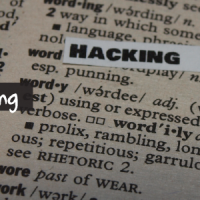

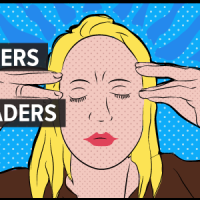

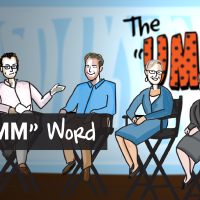

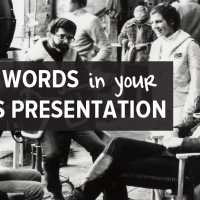
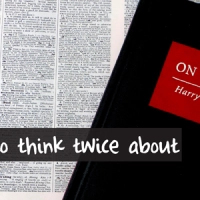
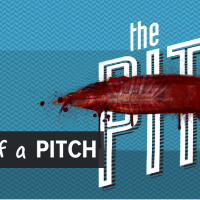





Reblogged this on The Presenters' Blog and commented:
How do you tackle the “uhmmmmm” word when presenting? Here are the answers. Assembled on the Make a Powerful Point blog by a team of distinguished Presentation Pro’s, and me!
I loved this post – a great subject and I liked the different yet linked expert opinions. Hilary Clinton is a bit of a master at urms and are – but her delivery is so impactful and what she says so relevant that you don’t focus on them.
Lois,
You are right. I hadn’t noticed the umm’s before. The panel has a point – the occasional umm isn’t as important as the content and manner of delivery…
Wow! In the end I got a weblog from where I be able to actually obtain valuable data
regarding my study and knowledge.
Video yourself! That is the single best way (in my opinion) to get rid of the umms…. boy, does it make you aware of it quickly! Great article, and great tips 🙂 Thanks for sharing
Using a Verbal-clutch; “Ah / um / you-know”‘s are so-easily avoided when we present what we mean to say. We use this clutch whenever our voice out-runs our minds!
Simple s-l-o-w-i-n-g d-o-w-n helps us to clearly and concisely verbalize our thoughts.
I use this “slowing down” technique in many situations where Critical thinking is used.